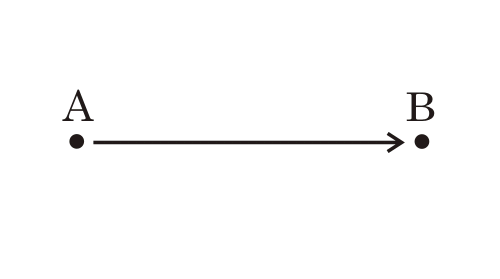 |
Craig White's Literature Courses Future Narratives Compared (for Literature of the Future) |
 |
Narratives or stories describe or model individual or national origins, struggles, and goals. For literature of the future, three stories or models of time dominate, but not exclusively—they are identifiable, but they may combine, resemble, or turn into each other.
 Creation / Apocalypse |
 Evolution |
 Alternative |
|
| Epistemology: how do we know? |
revelation,
revealed truth, tradition |
empiricism: observation, experimentation,
& theory in science from classical to modern times |
postmodern quantum physics,
relativity; sense of more worlds / minds than our own |
| Nature of time;
human, divine, or natural mission |
linear beginning>middle>end (discrete time-events) union with God > fall or loss > redemption / reunion / restoration |
cyclical, spiral,
interconnected possibly progressive; entropy or increasing complexity, diversity |
branching tree, forking paths,
mazes, parallel worlds, other minds or cultures |
| time scale |
human-scale time-scale:
6000-10,000 years? (since Creation) |
cosmic /
geologic time scale: earth 4.5
billion yrs, cosmos 12-20 billion, modern humans 200,000 yrs, civilization app. 10,000 yrs |
mixed signals: some parts of
cosmos seem younger than they should be; time may not be uniform;
psychological time versus empirical time |
| human significance / prominence |
God as parent to human children in God's image >
family values; Jesus as hero ("saver / savior") of romance |
human form diminishes against larger space-time
background; human ancestors may appear non-human |
identities may appear in an infinite number of time-paths;
reality as bewildering options, alternatives, or choices;
definite good and
bad are "relativized" by infinite possibilities |
| human relations |
Adam & Eve as original nuclear family, cooperative oasis in cruel, competitive world |
Darwinian biology &
Social Darwinism: survival of
fittest, dog-eat-dog, sharks (some evolutionary models emphasize
cooperation over competition or shifting balance) |
multicultural, multigender society; different
cultures telling different stories with conflicting time-scales? (e.g.
USA & China) |
| validity issues |
Apocalypse never exactly happens but unfalsifiable; every generation "the last generation" + pressure of decline |
unanimous acceptance among practicing scientists,
but widespread popular disbelief / difficulty; yet science always
changes |
quantum physics as elite, cutting-edge theory only
beginnning to enter common language |
| Literary appeals or detractions | brief, direct, linear narrative; human characters; heroes as good guys or "chosen or special children" of God, villains as Satanic bad guys, damned for eternity | possibility of progress; stories of survival and dominance conform to romance narrative, but non-human characters, vast time scales, and complicated ecological relationships may dilute narrative appeal | playfulness, giddiness of many times and lives, compromised by lack of absolute primacy or validity of any single time or identity; disorientation & lack of stability |
![]()
Overall narrative descriptions:
one appeal of Apocalyptic narrative is that it's one story for all of Creation.
Evolutionary narrative: many stories going on at once
Alternative narrative: ditto
Genesis-Revelation, creation-apocalypse narrative:
![]() World / order
of human unity with divine is created, lost > restored, redeemed
World / order
of human unity with divine is created, lost > restored, redeemed
![]() Garden of Eden,
tree of life > fall, exile, human history > Christ's return > Heaven with
tree of life (unity, immortality restored)
Garden of Eden,
tree of life > fall, exile, human history > Christ's return > Heaven with
tree of life (unity, immortality restored)
![]() Parable of the Sower: patriarchal family, community garden in Robledos >
journey north through tests, trials [romance
narrative] > Acorn community, w/ trees from original garden & journey
Parable of the Sower: patriarchal family, community garden in Robledos >
journey north through tests, trials [romance
narrative] > Acorn community, w/ trees from original garden & journey
![]() American history: Founding as divine-human union (Pilgrims as religious
freedom & commitment; Founders as "godly men") > party politics, Native American
dispossession, African American slavery, increasing materialism, secularism,
modernization >
American history: Founding as divine-human union (Pilgrims as religious
freedom & commitment; Founders as "godly men") > party politics, Native American
dispossession, African American slavery, increasing materialism, secularism,
modernization >
Evolutionary narrative: (open-ended narrative, no essential beginning, middle, or end)
![]() world / order
progressively emerges > changes to which humans (etc.) adapt > earlier order is not necessarily restored,
but past always transitions into future (genetic recombination)
world / order
progressively emerges > changes to which humans (etc.) adapt > earlier order is not necessarily restored,
but past always transitions into future (genetic recombination)
![]() potential for
heroic progress, but just as much potential for regress; especially in longer
visions of time or broader visions of planetary wealth and suffering, no definite
direction to natural or human history
potential for
heroic progress, but just as much potential for regress; especially in longer
visions of time or broader visions of planetary wealth and suffering, no definite
direction to natural or human history
progress and regress may happen at once or as part of exchange
science fiction rises contemporaneously with theory of evolution
Apocalyptic concerns humans, evolution concerns nature?
![]() Parable of the Sower:
Parable of the Sower:
![]() American history:
American history:
Where do two narratives merge, overlap?
cycles of evolution may resemble creation-apocalypse
(class discussion: apocalypse as event > series of apocalypses)
Both apocalypse and evolution feature character-divisions of winners and losers, predators and prey, saints and sinners.
Despite historical failure of millennium, Revelation may be right but the will of God continually eludes human comprehension.
Apocalyptic narrative of radical change may be a human-scale comprehension of the long-term evolutionary narrative in cosmic or geologic time.
> alternative futures
conceivable that apocalypse and evolution are alternative perceptions of same reality
alternative future may contain both apocalypse and evolution and then some, but distancing effect makes all the choices seem to matter less?
Final image: future as book not yet opened
![]()